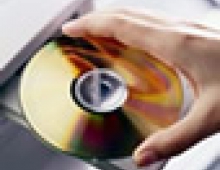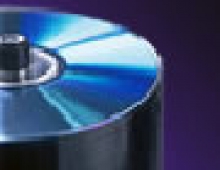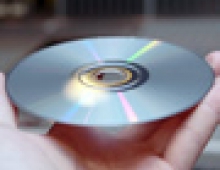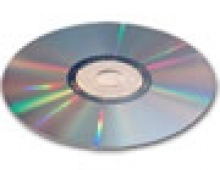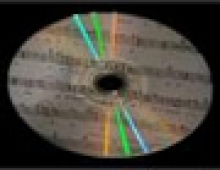
Kiosks give you earful before you buy CD
Above the throb of the stereo, customers at Rhino Records can escape to an expansive world of music -- snippets from more than 200,000 albums -- simply by slipping on headphones. While record stores have long had their own listening posts, the system developed by a company called RedDotNet represents the next great leap in taking the guesswork out of buying music.
At Rhino, it begins when customers saunter to one of four kiosks. They swipe the bar code of any CD across a reader. The name of the album and the songs on it pop up on a screen. The music starts playing. Customers can scroll through selections at will. And the names of other albums he or she might enjoy are displayed.
''People ask, 'Is this a good CD?' and I can't give them an honest answer,'' says J.D. Molnar, night manager of the popular store on Los Angeles' west side. Now, he sends them to RedDotNet so they can listen for themselves.
In the days of vinyl albums, some bigger stores offered glass listening booths where customers could preview albums in seclusion. Today, most stores have kiosks where customers can sample a few CDs -- but usually only a few of the best sellers or staff favorites.
RedDotNet, and competing systems made by several rivals, advance that. All told, the RedDotNet system has samples from 2.5 million album cuts, making it a potential boon to record-store owners.
''You can sell more music but stock less,'' says Robert McCray, president of RedDotNet in Carlsbad, Calif., which operates from an industrial park. The 5-year-old company has about 50 employees.
The system is installed in about 200 stores nationwide. McCray sees potential for as many as 2,000 outlets in two years.
It isn't just about music. The kiosks can play trailers or promotional movie clips from any of up to 10,000 films and 1,800 video games. They work the same way as the movies -- just wave the bar code of a DVD or video game package under the reader.
The kiosk started as something entirely different. When the technology craze was in full bloom, the company was formed as Digital on Demand to let customers create their own CDs. A customer downloaded music to a machine that created the finished CD. A store clerk printed out the label.
At the time, it looked like the wave of the future: a virtual record store. The company was acquired in 1999 by Alliance Entertainment. By 2000, about 30 stores were trying out the ready-made CD system -- from Kmart to Best Buy. But the process proved cumbersome and was eventually withdrawn.
Barnes & Noble, the big book and music chain, meanwhile, was looking for a new type of kiosk that would allow people to sample everything from books on tape to CDs.
Using existing technology, a team of four engineers conceived and built the first RedDotNet music-sampling system.
To make sure it gets used, RedDotNet recommends that store owners install plenty of kiosks. For a system with about 20 kiosks, a store might typically pay an all-inclusive $2,500 a month to acquire the equipment and for content, including weekly music updates and maintenance.
''It's a little more expensive'' than competing systems by two other companies. ''But there's a lot more interactivity with the customer,'' says David Lang, president of the 10-store Compact Disc World chain in New Jersey. He's installed it in two new stores, including one where it helped boost sales 20%.
The system also has allowed Compact Disc World to jettison a policy of allowing customers to unwrap CDs and play them _ an expensive proposition because the CDs could no longer be sold as new.
''It makes the customer more comfortable,'' Lang says. ''They may like a song, but no one wants to spend $13 or $14 for one song.''
''People ask, 'Is this a good CD?' and I can't give them an honest answer,'' says J.D. Molnar, night manager of the popular store on Los Angeles' west side. Now, he sends them to RedDotNet so they can listen for themselves.
In the days of vinyl albums, some bigger stores offered glass listening booths where customers could preview albums in seclusion. Today, most stores have kiosks where customers can sample a few CDs -- but usually only a few of the best sellers or staff favorites.
RedDotNet, and competing systems made by several rivals, advance that. All told, the RedDotNet system has samples from 2.5 million album cuts, making it a potential boon to record-store owners.
''You can sell more music but stock less,'' says Robert McCray, president of RedDotNet in Carlsbad, Calif., which operates from an industrial park. The 5-year-old company has about 50 employees.
The system is installed in about 200 stores nationwide. McCray sees potential for as many as 2,000 outlets in two years.
It isn't just about music. The kiosks can play trailers or promotional movie clips from any of up to 10,000 films and 1,800 video games. They work the same way as the movies -- just wave the bar code of a DVD or video game package under the reader.
The kiosk started as something entirely different. When the technology craze was in full bloom, the company was formed as Digital on Demand to let customers create their own CDs. A customer downloaded music to a machine that created the finished CD. A store clerk printed out the label.
At the time, it looked like the wave of the future: a virtual record store. The company was acquired in 1999 by Alliance Entertainment. By 2000, about 30 stores were trying out the ready-made CD system -- from Kmart to Best Buy. But the process proved cumbersome and was eventually withdrawn.
Barnes & Noble, the big book and music chain, meanwhile, was looking for a new type of kiosk that would allow people to sample everything from books on tape to CDs.
Using existing technology, a team of four engineers conceived and built the first RedDotNet music-sampling system.
To make sure it gets used, RedDotNet recommends that store owners install plenty of kiosks. For a system with about 20 kiosks, a store might typically pay an all-inclusive $2,500 a month to acquire the equipment and for content, including weekly music updates and maintenance.
''It's a little more expensive'' than competing systems by two other companies. ''But there's a lot more interactivity with the customer,'' says David Lang, president of the 10-store Compact Disc World chain in New Jersey. He's installed it in two new stores, including one where it helped boost sales 20%.
The system also has allowed Compact Disc World to jettison a policy of allowing customers to unwrap CDs and play them _ an expensive proposition because the CDs could no longer be sold as new.
''It makes the customer more comfortable,'' Lang says. ''They may like a song, but no one wants to spend $13 or $14 for one song.''


